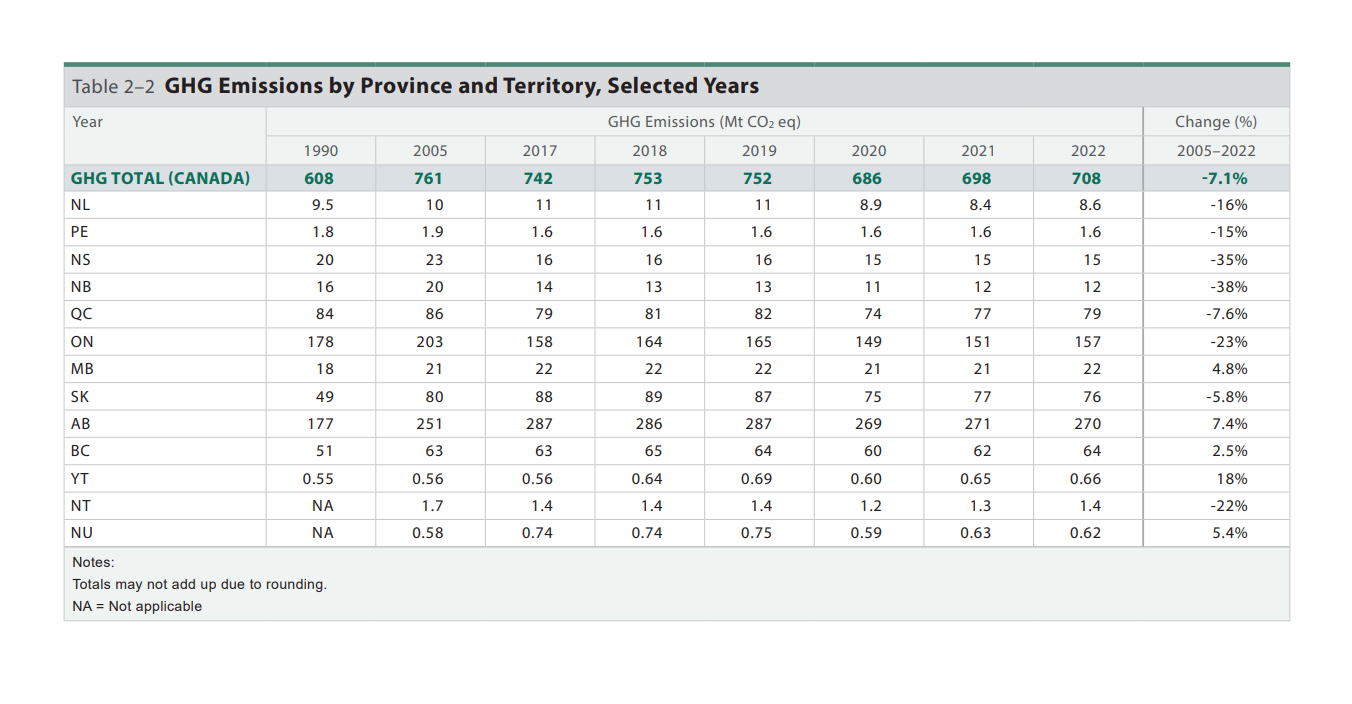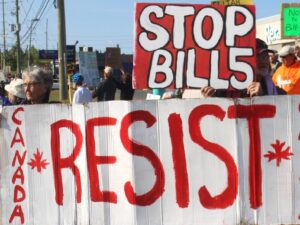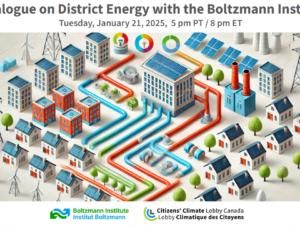May 3, 2024 – As Canadians continue to grapple with the aftermath of last summer’s record wildfire season, we face a critical moment in tackling our greenhouse gas (GHG) emissions. Lack of cooperation among provinces and territories, worsened by devastating wildfires, has led to a slight uptick in emissions in 2022. On Thursday, May 2, 2024, Canada’s National Inventory Report for 2022 was released. Though Canada’s global heating emissions remain below pre-pandemic levels, urgent action is needed to accelerate reductions. But how? We need to step back and take a look at the bigger picture. The Confederation of Canada’s constitution grants significant powers to the provinces, particularly over energy and climate policies. This has resulted in a fragmented approach to climate accountability nationwide. Alarmingly, five provinces and territories, including Newfoundland and Labrador, the Northwest Territories, Nunavut, Alberta, and Saskatchewan, lack comprehensive climate accountability laws. Ontario has partial accountability laws. But with the cancellation of crucial climate programs and plans to invest in new fossil-gas infrastructure, Ontario accounts for 6Mt of the 10Mt increase in GHGs in 2022. Next week, the Ontario PCs are expected to go against the Ontario Energy Board’s advice against investing taxpayer and ratepayer funds in new fossil-gas pipelines for home heating and enact Bill 165. They also plan to expand fossil-gas electricity despite RBC, the largest financier of fossil fuels globally, advising against it. Additionally, the relentless opposition to carbon pricing poses significant headwinds and a threat to Canada’s economy. Canada has three carbon pricing policies: the consumer price, the heavy emitter price and the cap and trade program for the oil gas industry and they are responsible for the lionshare of reductions for global heating gases. The indisputable truth is that carbon pricing works. Without the clear signal from carbon pricing, it is difficult for industries to plan. For example without sufficient carbon pricing, achieving significant emissions cuts with carbon capture on the scale needed for climate goals looks doubtful. The latest casualty of this onslaught opposition to carbon pricing is the cancellation of Capital Power’s $2.4-billion project. This doesn’t just impact the fossil fuel industry; Canada invested billions of our tax dollars in carbon capture, which will be essential for our steel and cement industry to sequester the carbon they cannot eliminate from their production chain. “Truly lack of cooperation in the Confederation is the root cause of why climate action is hobbled in Canada,” says Cathy Orlando, director of programs at Citizens’ Climate Lobby Canada. Moreover, the devastating impact of wildfires cannot be understated. In 2022, Canada’s forests, typically a carbon sink, became a net source of emissions due to drought and wildfires. This highlights the urgent need for comprehensive climate action to address both human-induced and natural sources of emissions. Recent polling data underscores the widespread public support for bold climate policies. Across regions and political affiliations, Canadians are demanding action to hold companies accountable for their emissions and to swiftly implement policies to reduce pollution from the oil and gas industry. The majority of Canadians reject the notion of allowing companies to “pay to pollute” through offset credits, signaling a clear mandate for stronger regulations. Solution: Everyday people and climate-concerned governments in Canada need to keep speaking up about effective solutions. For a stable climate and economic prosperity. Canada stands at a pivotal moment in its fight against climate change. We all must demand evidence-based policies from all politicians and to support policies that prioritize environmental sustainability and economic prosperity. — Image Source: Canada’s 2022 National Inventory ReportLack of Cooperation in the Confederation and Wildfires Key Factors in
Canada’s 2022 GHG UptickFOR IMMEDIATE RELEASE: Friday, May 3, 2024
MEDIA CONTACT: Cathy Orlando cathy@citizensclimate.org 705-929-4043
MEDIA RELEASE: Lack of Cooperation in the Confederation and Wildfires Key Factors in Canada’s 2022 GHG Uptick
Home » CCL Canada News » MEDIA RELEASE: Lack of Cooperation in the Confederation and Wildfires Key Factors in Canada’s 2022 GHG Uptick
MEDIA RELEASE: Lack of Cooperation in the Confederation and Wildfires Key Factors in Canada’s 2022 GHG Uptick
Posted on May 3, 2024 in Media Release













